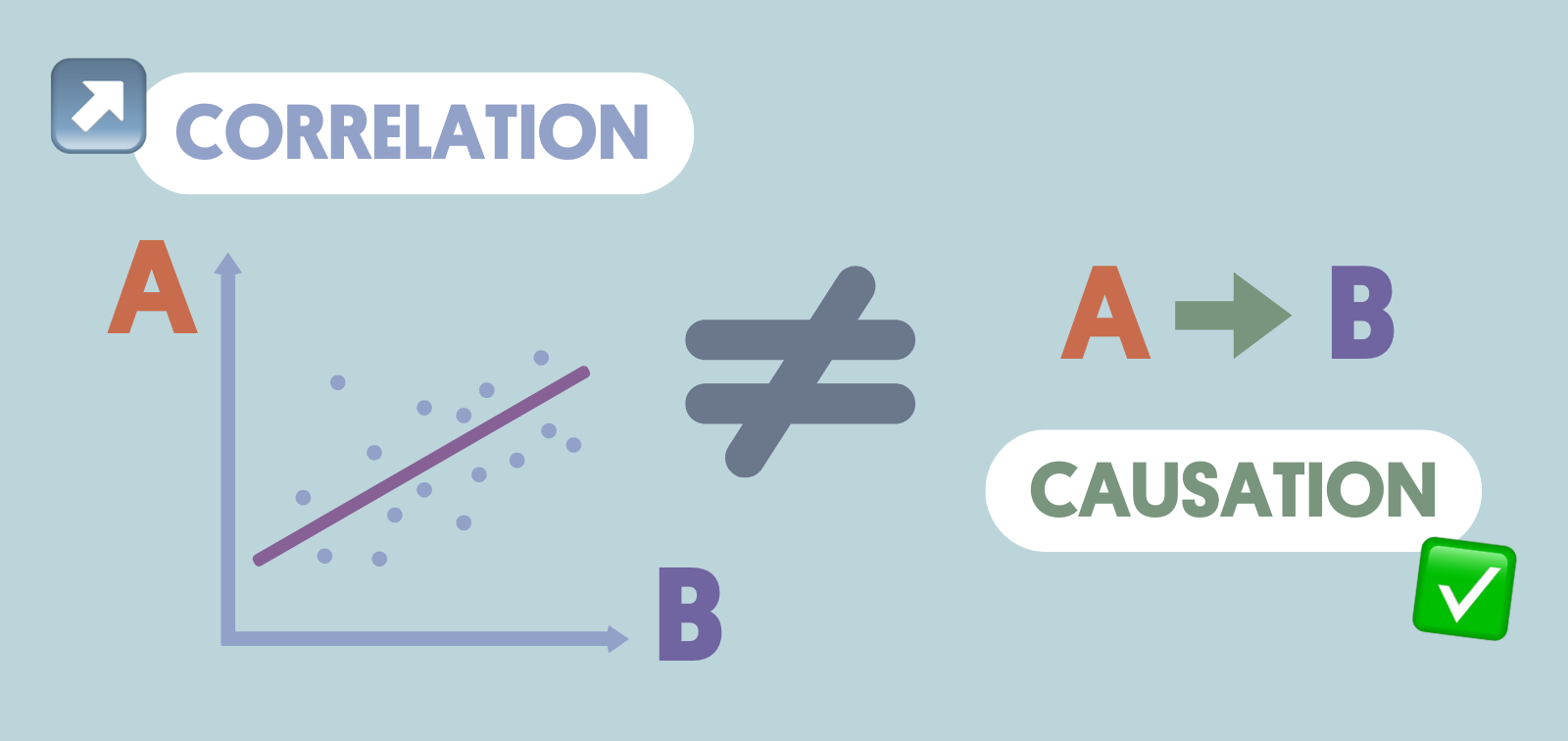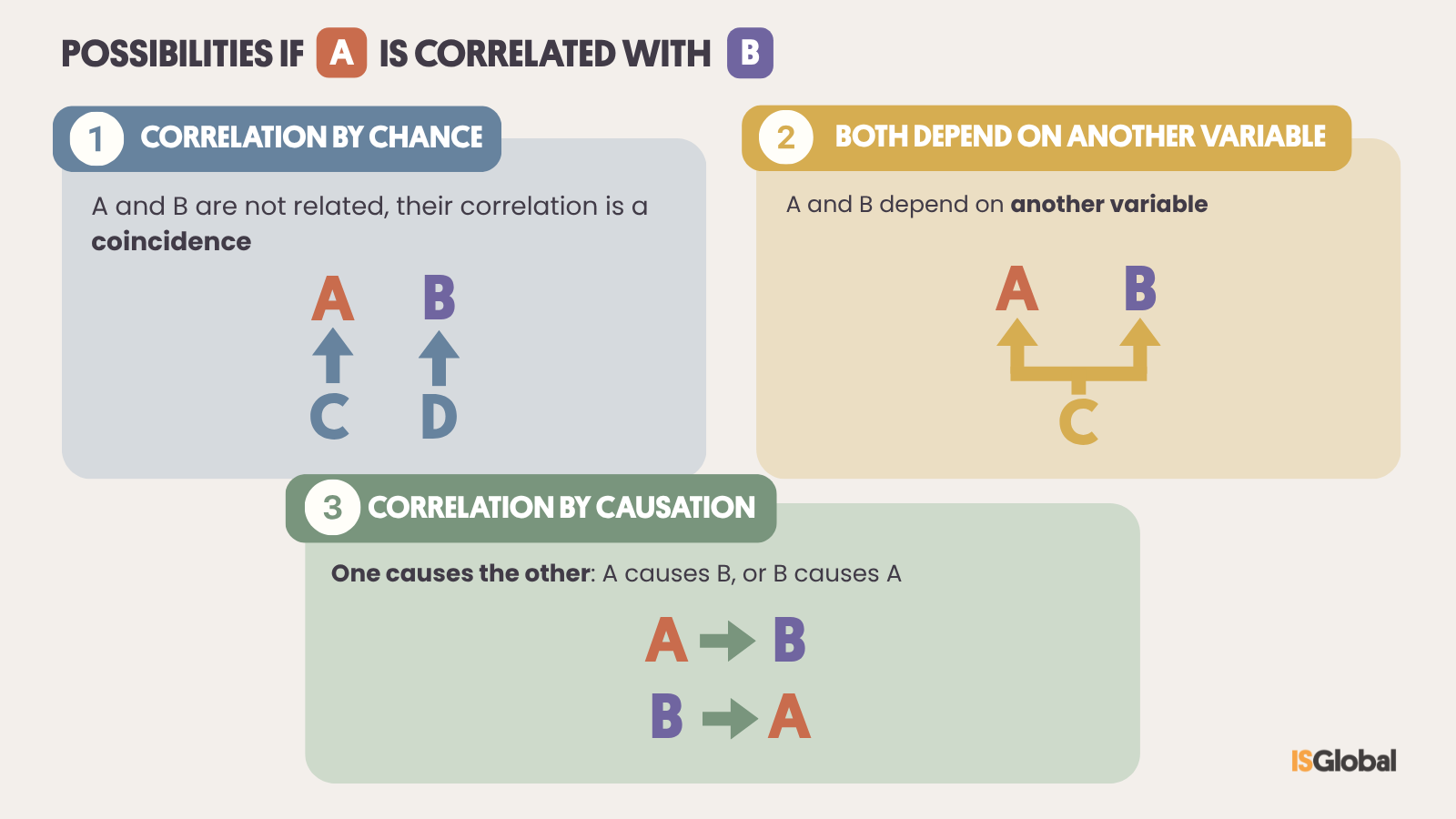Correlation vs. Causation

Does correlation imply causation?
Correlation means that two variables are strongly related to each other (in other words, there is a statistical association between them). If they rise or fall together, this is a positive correlation. If one increases while the other decreases, this is a negative correlation.
But this does not mean that one causes the other. In other words, correlation does not necessarily imply causation.

Two variables (A and B) may be correlated:
- By pure chance (first box in the diagram). For example, margarine consumption in the state of Maine, USA, has increased at the same rate as the number of divorces. But that doesn’t mean eating margarine causes divorces.
- Because both depend on another variable (second box in the diagram). For example, the variables “ice cream consumption” and “number of people who drowned at sea” are correlated because both rise in summer, due to the heat.
- Because one causes the other (third box in the diagram). In this case, there is both correlation and causation. For example, eating spoiled food and getting a stomach illness.
We can only speak of causation between two variables when we can prove that one causes a change in the other. Establishing causality in biology is not easy, as many variables are involved. It requires controlled experiments, or the analysis of large amounts of data from many people over time.

Knowing how to distinguish between correlation and causation is very important in this age of big data and fake news. It will help you make better decisions and avoid misinformation.
READ MORE
COLLAPSE
MULTIMEDIA MATERIAL
